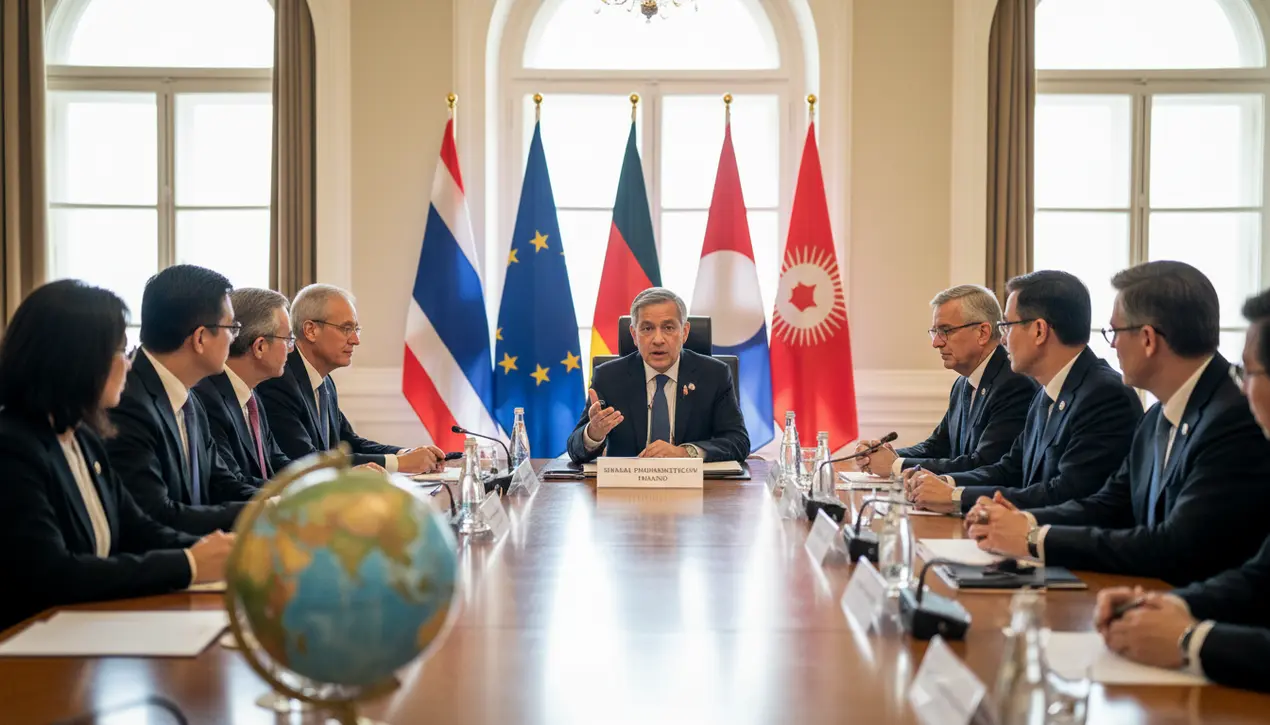
PoliticsdiplomacyBilateral Relations
Thailand urges EU to balance powers in ASEAN region.
RO
Robert Hayes
23 hours ago7 min read3 comments
In the grand theater of global statecraft, where alliances are forged and influence is measured in diplomatic nuance, the recent appeal from Thailand’s Foreign Minister Sihasak Phuangketkeow carries the weight of a seasoned strategic calculation. Speaking to Euronews on the sidelines of an Indo-Pacific meeting in Brussels, the minister articulated a position that would have resonated with the classical balance-of-power theorists of old: the European Union’s sustained presence in the ASEAN region is not merely welcome, but essential as a counterweight to the escalating rivalry between the United States and China.This is not a novel concept, but its explicit endorsement by a key ASEAN member signals a profound shift in the regional calculus. For decades, the ten-nation bloc has navigated a delicate tightrope, advocating for 'ASEAN centrality' while its individual members often found themselves pulled into the gravitational orbits of either Washington or Beijing.Thailand itself has historically oscillated, a long-standing U. S.treaty ally that has, in recent years, deepened its economic and military ties with China. Minister Sihasak’s statement, therefore, is a clear indicator of a growing weariness with this binary choice.It reflects a collective desire for a more multipolar Southeast Asia, where ASEAN is not a passive arena for great power competition but an active architect of its own destiny. The EU, with its immense economic clout and normative power, represents a third force—one perceived as less overtly hegemonic and more committed to a rules-based international order.This is a strategic gambit reminiscent of smaller European states during the Cold War, who sought to leverage their position between superpowers to maximize their own autonomy and security. The potential consequences are multifaceted.A more engaged EU could complicate China’s Belt and Road Initiative by offering alternative infrastructure financing with stricter governance standards, while simultaneously reassuring the U. S.that its strategic interests are not being ceded. However, the path is fraught with challenges.The EU must first overcome its own internal divisions to present a coherent and decisive foreign policy front. Furthermore, it must prove its commitment is long-term and not merely a reaction to American or Chinese posturing.For ASEAN, the success of this balancing act hinges on its oft-criticized unity; if member states fracture and pursue individual accommodations with the great powers, the entire strategy collapses. As Churchill might have observed, this is not the beginning of the end, but it is perhaps the end of the beginning for a new, more complex phase of geopolitical maneuvering in the Indo-Pacific, where old alliances are being reassessed and new strategic geometries are tentatively being drawn.
#ASEAN
#EU
#Thailand
#foreign policy
#balance of power
#China
#US
#featured
Stay Informed. Act Smarter.
Get weekly highlights, major headlines, and expert insights — then put your knowledge to work in our live prediction markets.
Related News
Comments
Loading comments...
© 2025 Outpoll Service LTD. All rights reserved.